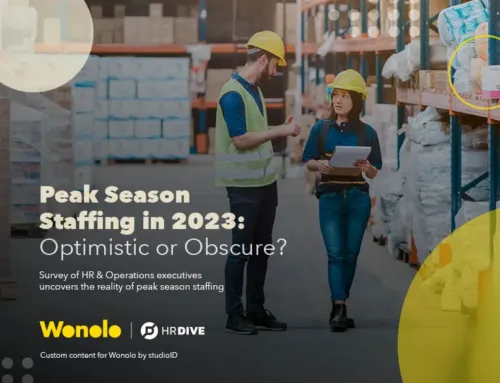Wonolo
Taxes are one of the two certain things in life, and if you’re a gig economy worker, it’s certain you need to know how taxes are going to impact you. Although the tax system can be complicated, a little forward planning and awareness can ensure you’re prepared for tax season, and reduce the shock of a big tax bill.
The gig economy is a growing part of the workforce — whether you work with Uber, Lyft, TaskRabbit, Airbnb, Fiverr, Postmates, Wonolo, or another marketplace, we’ll cover the basics you need to know about your tax situation. Remember, the contents of this article are intended to convey general information only and not to provide legal or financial advice or opinions. Everyone’s individual circumstances are different, so we always recommend speaking to a qualified accountant. They can help you minimize your tax burden and ensure you’re meeting any requirements you may have with the IRS.
The Types of Taxes You Will Need to Pay as a Gig Economy Worker
In most cases, gig economy workers are considered to be self-employed. This means you will be liable for similar taxes to other self-employed freelancers and business owners. Although the way you structure your business (e.g. as a sole proprietor, Limited Liability Company, corporation, or something else) can have implications on your tax, for the sake of this guide, we’ll keep things simple. For more nuance, speak to your CPA.
The first type of tax you will be liable for is self-employment tax, also known as FICA / Medicare tax. This will be levied on all of your self-employed earnings after expenses, and is charged at just over 15%.
Secondly, you will also need to pay federal income tax. This is the standard tax paid by all workers in the US and is levied in various bands on your income once expenses, deductions, and allowances are taken into account. If you have other forms of income besides self-employment (like another employed job), you will need to pay federal income tax on your combined earnings.
Finally, depending on where you live, you will need to pay state tax. Like federal income tax, this will be levied on your combined earnings.
As a Gig Economy Worker, You Only Pay Taxes on Your Profits
Your gig economy work is taxed like a business — in other words, you earn money, then you get to deduct expenses. What is left over, your profit, is what you will need to pay tax on. Because you don’t pay taxes on expenses, it makes sense to maximize them as much as possible.
Expenses for Gig Economy Workers
Here are some areas to think about when it comes to claiming expenses:
- Gig marketplace fees — if you pay fees to use a gig marketplace (as a commission or similar) you can deduct those fees as expenses.
- Payment processing fees — some marketplaces will charge you if you accept certain payment methods. If you’re charged for payment processing, you don’t need to pay tax on the payment processing charge amounts. The same applies to any bank charges.
- Exchange rate fees — if you’re paid in a different currency and transfer it into US dollars, you can claim exchange rate fees as an expense.
- Software and subscriptions — any expenses you spend on software or subscriptions to do your job can be claimed as expenses. For example, if you pay for training, professional memberships, or software usage fees, those are normally deductible.
- Office equipment and sundries — any equipment or sundries you use in your job, for example a smartphone, laptop, printer, consumables, and other office costs are often deductible as expenses.
- Home office deduction — if you use a room in your home exclusively for running your gig economy business, you may be able to claim some expenses as part of a home office deduction.
- Costs incurred in providing a service — these expenses will be unique to the services you provide. For example, people driving for Lyft or Uber can often deduct car-related expenses like mileage, maintenance, insurance, etc. Airbnb owners can likely deduct costs for repairs and maintenance. Because these expenses vary so much, speak to your accountant.
- Health insurance — if you have to pay for your own health insurance (not as part of the Affordable Care Act) then some or all of your premiums may be deductible.
- Other areas — charitable donations, marketing and advertising, insurance, and other areas may also be tax deductible as well.
Remember that you will need to be able to prove all of your expenses if you’re audited by the IRS (which is more common for the self-employed). As a result, you should always keep receipts and be able to backup anything you’re claiming.
If you don’t use something full time for your business (for example your smartphone), you can only deduct the part of the cost that is used to provide gig economy services. For example, if you use your smartphone for business 70% of the time, you can deduct 70% of the purchase cost and of your monthly charges.
Estimated Taxes for Gig Economy Workers
All self-employed workers are required to pay estimated taxes to the IRS and your state government on a quarterly basis. If you don’t, you may be fined and charged interest on unpaid tax amounts, and get a nasty tax bill at the end of the year. A good rule of thumb is to pay roughly 25% to 30% of your self-employed profits as estimated taxes. Remember that anything you overpay will be returned as a rebate when you file your taxes. Managing your budget as a freelancer is essential.
The 1099 Form for Gig Economy Workers
One form you will need to get used to if you’re providing self-employed, gig economy services is the 1099. This is a form that marketplace providers or independent private clients will provide you on a yearly basis. You use this when you’re preparing your taxes, and the IRS also gets a copy too, so they know how much you earn as a self-employed individual.
Use Retirement Funds to Reduce Your Tax Burden
One final thing you can do to reduce your tax burden is to put money into retirement accounts. Not only does this reduce the tax you pay now, it’s also vital to planning for the future. Tax deductions typically apply to money you put into a standard 401(K) or IRA account.
Because the tax system is complex, we’ve only explored the basics here, and getting advice for your specific circumstances is always a great idea. Find an accountant you can trust and they can guide you through the intricacies of self-employed taxes, reduce the amount you pay, and help you file your taxes with the state and the IRS.


![[Report] Beyond the Gig: Exploring Reliable Work Options for the Modern Workforce](https://info.wonolo.com/wp-content/uploads/2023/10/Worker-Preferences-Report-Header-Image-500x383.png)



